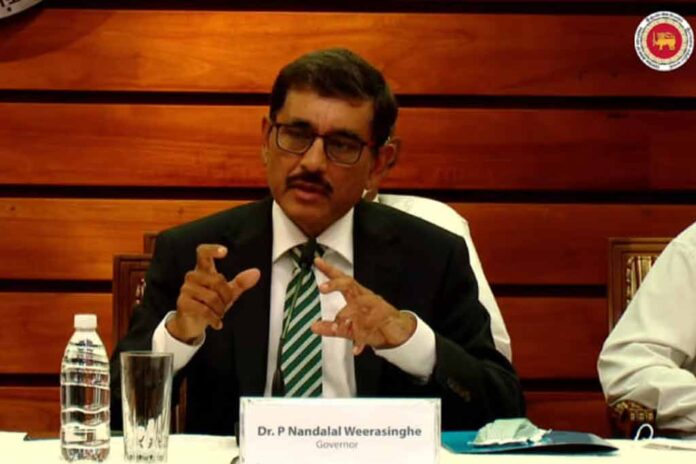By: Staff Writer
June 25, Colombo (LNW): Sri Lanka Bank business revival units set up during the Covid -19 pandemic period will be strengthened to operate independently under current normal circumstances to help Small medium and corporate enterprises that have bad loans to continue their operations, Central Bank Governor Governor Nandalal Weerasinghe said.
New guidelines will be issued by the Central Bank next week to maintain and strengthen these units by banks to facilitate the revival of those enterprises hit by the economic crisis journalists at the second monetary policy review briefing.
Bank s will have to extend loans facilities at concessionary loans to restructure their business entities affected by the recent challenging macroeconomic circumstances, he said.
Sri Lanka’s Micro, Small and Medium Enterprises (MSMEs) hit by the economic downturn will receive a new impetus with the introduction of Rs 5 billion new loan relief package proposed in the budget 2024, finance ministry sources confirmed.
The finance ministry in collaboration with ministry of industries will provide credit facilities of Rs 5 million each to 1000 selected existing MSMEs for further expansion and recovery of their businesses via licensed commercial banks and licensed specialised banks at concessional interest rates.
Another special loan scheme amounting to Rs.3 billion will be implemented with support from the Asian Development Bank (ADB) in addition to the 2024 budgetary support.
The government is also considering the possibility of upgrading the Sri Lanka Savings Bank a subsidiary of the National Savings Bank to a MSME Bank or to set up a special purpose vehicle (SPV) to disburse loans easing the burden on the banking sector.
Ceylon Federation of Micro, Small, and Medium Entrepreneurs Chairperson Shashika de Silva has urgently called for the restructuring of MSME loans to avert an impending crisis.
Speaking at a press conference on Friday, de Silva highlighted the critical need for immediate action to support MSMEs, warning of severe consequences if their financial burdens are not addressed.
“We have a responsibility to bring focus to issues faced by MSMEs,” de Silva stated. She emphasised that while the Government has taken steps to temporarily halt parate executions, the ongoing restructuring phase in Sri Lanka has overlooked the dire situation of MSMEs.
De Silva noted that MSMEs are currently weighed down by Rs. 1.6 trillion in third-stage loans. “Restructuring MSMEs is essential, but it cannot happen if we do not address the Rs. 1.6 trillion in loans.
Among these, Rs. 250 billion are attributed to non-wilful defaulters,” she said. “If this issue is ignored, MSMEs will face severe difficulties after 15 December, when parate executions resume.”,she said.
Small and medium-sized enterprises (SMEs) make up a large part of Sri Lanka’s economy, with over one million SMEs accounting for approximately 75 percent of all businesses.
These are found in all sectors of the economy and are estimated to contribute about 45 percent of total employment in Sri Lanka

